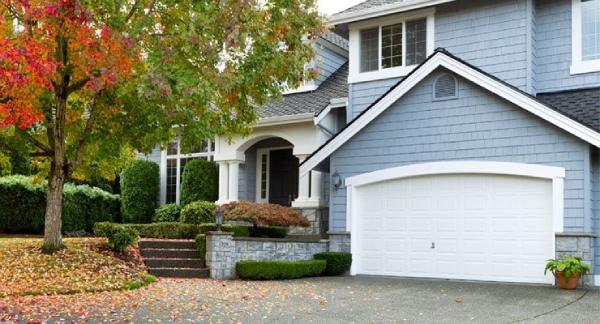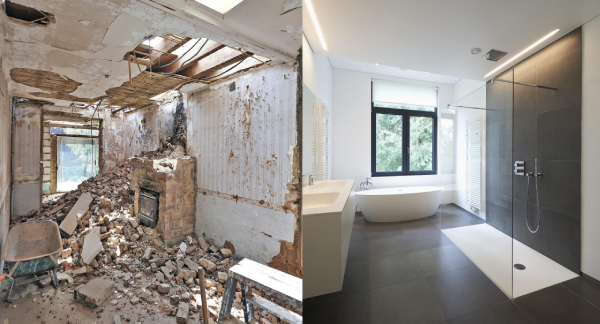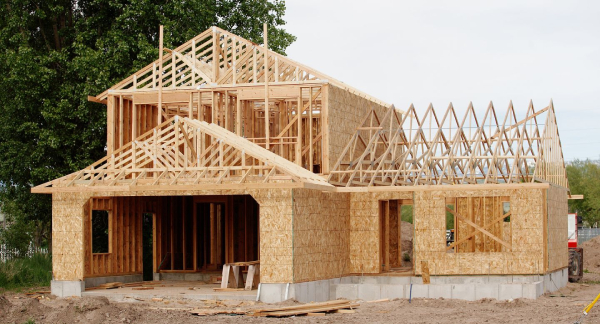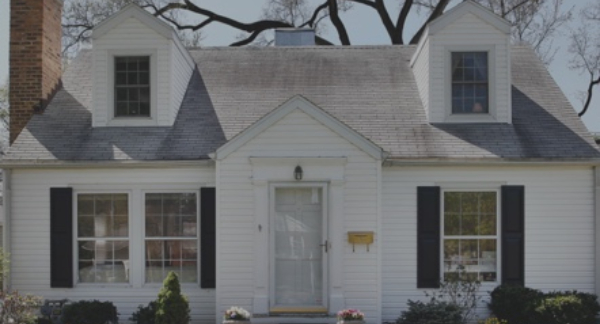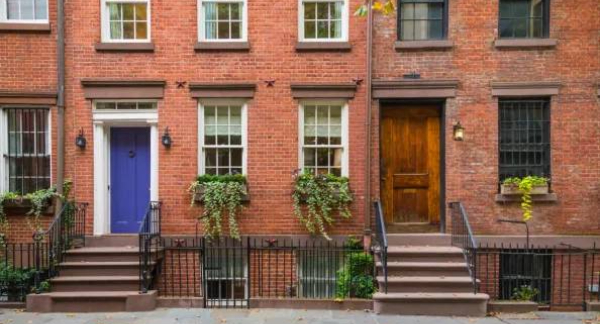Many people want to know if they can get hard money loans for owner-occupied properties. An owner-occupied property simply means the borrower will use the property as their primary residence.
Lenders will label a primary residence property as such because they need to know if the borrower will live in the home, rent it out, or attempt to sell it. Some lending companies will not want to offer a loan on a rental property because it carries a greater risk.
Borrowers who plan to live in the property need to learn about their owner-occupied lending options. Getting private money loans or residential hard money loans from a private money lender like us may be the perfect answer for your funding needs.
If you’re considering a private money lender, we are here to give you answers and help you discover your options. With this information, we will help you learn how you may qualify for a hard money loan for primary residence properties.
Owner-Occupied Hard Money Loans Are Different Than a Conventional Loan
If you are a residential owner and have ever been to a bank for a conventional loan, you know what a hassle the process can become to be approved for conventional financing. Banks delve deeply into your financial history. They want to ensure you are worthy of the loan request. With conventional loans, the bank will expect the following from you.
- A high credit score
- Proof of income and tax returns
- Low debt-to-income ratio
- No foreclosures or bankruptcies
How Are Owner-Occupied Hard Money Loans Acquired?
A hard money owner-occupied loan is obtained from a private lender or a company that focuses on this type of funding. Most hard money loans are short-term loans and must be repaid in 24 months or less, depending on the loan timeline.
While many lending companies do not offer long-term hard money loans, some go the extra mile. Most private lenders will not ask the residential owner to provide a lengthy financial history. The lending company may also offer approval even when banks have turned down a borrower.
What Is an Owner-Occupied Hard Money Loan From Hard Money Lenders?
Many borrowers have unique financial issues or property types that require creative funding. This type of loan is also referred to as a consumer-purpose loan.
While very few alternative lenders offer these hard money consumer loans, some do. If you need owner-occupied loans or consumer hard money loans, keep reading to learn all the facts you need.
Reasons a Conventional Lender May Deny You Financing for Owner-Occupied Loans
Conventional financing is not always an option. The following are some reasons you may find it difficult to seek funding from a traditional bank.
- You want to purchase a home and have a home to sell.
- You are downsizing and do not want to worry about a double move.
- You are in a divorce or probate situation.
- You have reverse mortgage fallout.
- You have a short sale.
- You have short-term seasoning issues, including job time, or are self-employed with no proof of income.
- You face challenges with your down payment, poor credit, or a high-interest debt.
With the above scenarios, most conventional lenders are going to say no. It can be highly stressful to feel you have wasted your time jumping through hoops, only to be denied your hard money mortgage.
EXAMPLE LOAN SCENARIOS
Business Purpose vs. Consumer Purpose Loans
When seeking hard money lenders (owner-occupied property), borrowers may be able to get loan approval for their business purpose or consumer purpose needs. Understanding the differences between being a business purpose owner and a consumer purpose owner is essential.
Our partners help borrowers with both types of loans. Whether you need a consumer purpose or business purpose loan, they are here to help.
Hard Money Residential Loans May Have a Harder Approval Process
Unfortunately, most lenders will not approve owner-occupied hard money loans because of the following.
- Additional documentation is necessary.
- There is a need for additional regulatory licensing to provide hard money loans.
- This type of loan may be subject to increased regulations or requirements for high credit scores.
- There is a mandatory recision period, which increases the mandatory waiting period to fund the loan and may restrict loan modification.
- There are increased risks to the lender, resulting in a higher interest rate.
Private Money Lenders May Offer Business-Purpose Loans
Unlike traditional lenders, a private lender like us may provide business-purpose loans. This type of loan is workable if the following apply.
- The borrower already owns the residential property.
- The borrower has built up significant equity in the property.
- Some loan proceeds will be used for business purposes, such as funding a new business or purchasing an investment property.
How Can You Qualify?
If you are seeking a hard money loan to buy a house, you need to know about the qualifications before applying. It is important to note that owner-occupied hard money loans are subject to federal regulations, just like traditional loans.
Income Verification
Because there are federal regulations at play, the lending company must verify the income of the owner-occupied borrower before approving the residential hard money loan. There are a few different ways you may have your income verified, including the following.
- W2s
- Pay stubs, even for those who are self-employed
- Tax returns
- Bank statements
Debt-to-Income Ratio
The owner-occupied hard money lender will also need to check your debt to income ratio. They may verify the following.
- Other mortgages and mortgage payment history
- Car payments
- Credit card payments
- Borrower’s existing debts
Common Bridge Loan Terms
While all lenders offering hard money loans for owner-occupied homes are different, there are some common bridge loan terms you can expect as a borrower. You may expect the following terms from an owner-occupied loan or from private money loans.
- You can often close on the owner-occupied loan as soon as 5-7 days, but it generally takes closer to ten.
- There must be a purchase component to the hard money loan to be labeled as a true bridge loan.
- The terms for a bridge loan are usually a maximum of 11 months, which is not considered long-term financing.
- There is typically no prepayment penalty on a bridge loan.
- The typical interest rate is around 9.9%.
- You will pay points, doc and admin fees, and potentially a down payment.
MORE EXAMPLE LOAN SCENARIOS
Understanding Owner-Occupied Second Mortgage Options
Some owner-occupied hard money lenders nationwide offer second mortgage hard money loans. These loans can be used for both consumer and business purposes.
This loan uses the equity in the property. You can use this residential hard money loan to pay off your high-interest debts, student loans, legal costs, and more.
You can purchase a single-family or multi-family property. You can also use this loan to purchase commercial properties, construction properties, or land for development.
Most hard money lenders for residential homes will explain the process of obtaining a second mortgage in its entirety. Borrowers should also ask explicit questions and learn as much as possible about their options and the terms of residential hard money loans based on how much the borrower intends to borrow. The more you know, the better equipped you will be to make decisions.
How to Choose a Lender
Once you have decided on the type of loan, the most important decision you will need to make is choosing a residential hard money lender. The residential rehab hard money lender should be willing to answer questions and have patience with you, especially if you are new to hard money.
The following are some tips to help you choose the right residential hard money lenders.
- Make sure you choose nationwide residential hard money lenders and private lenders that specialize in hard money.
- Know if you are choosing an actual lending company or a broker (often, a broker has more flexible options).
- Ensure the hard money residential lenders are transparent with the entire process and fees, including a prepayment penalty, high interest rates, etc.
- Know how fast you need funding, and make sure the residential rehab hard money lenders and private investors can meet your loan scenario needs while also offering loan modification options.
Start Right Away for Fast Pre-Approval
You have decided you need hard money loans for residential property. If you are ready to get started, contact one of our partners right away for fast pre-approval.
We partner with the top nationwide hard money lenders for owner-occupied homes. We are here to answer your questions and help you through the entire process.
Our partners can help you get fast approval and funding for your property purchase needs in a competitive real estate market. You can rest assured that they will deliver on our promises and remain transparent throughout the process. Get started today.


